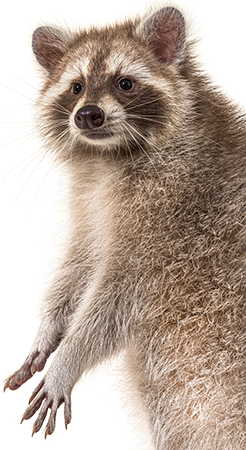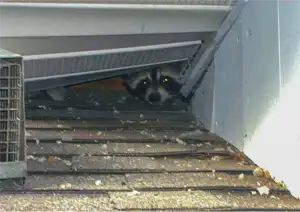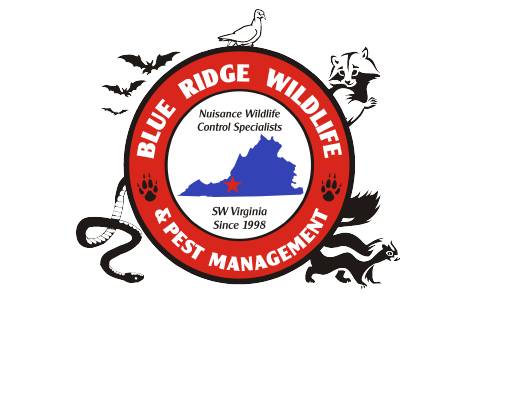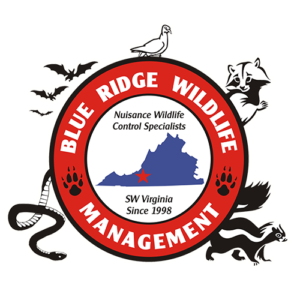
Common Raccoon Problems in Southwestern Virginia
Links to Common Raccoon Problems here in Southwest Virginia
Raccoon Behavior
Raccoons are primarily active at night, but they may also be active during the day. They are omnivores and will eat a wide variety of foods, including fruits, nuts, insects, fish, and small mammals. They are also known to raid garbage cans, gardens, and bird feeders.
Raccoons are also known for their intelligence and problem-solving abilities. They are skilled climbers and can easily gain access to roofs, attics, and other areas of a home. They are also known to use tools, such as breaking open clams with a rock.

Dealing With Raccoons
If you’re dealing with a raccoon problem, it’s important to take steps to deter them from your property. Here are a few tips for dealing with nuisance wildlife:
- Secure your garbage cans with tight-fitting lids.
- Keep pet food and birdseed inside or in a secure area.
- Pick up fallen fruit from fruit trees.
- Trim trees and branches that provide easy access to your roof or attic.
- Seal any openings in your home’s exterior, such as gaps around pipes and vents.
It is also important to understand that trapping and relocating raccoons is illegal in many states, including Connecticut, as it can spread disease and disrupt local ecosystems. In case of severe infestation, it is recommended to contact a licensed professional for humane removal.
If you’re dealing with a raccoon problem, don’t hesitate to call us today. Our team of licensed professionals have the expertise and experience to effectively and humanely remove raccoons from your property, and to take the necessary steps to prevent them from returning. We understand the importance of protecting your home and your family from raccoon-borne diseases, and we take all necessary precautions to ensure your safety. We also provide property protection services to prevent raccoons from causing damage to your home. Call us today to schedule an appointment and take the first step in solving your raccoon problem.

